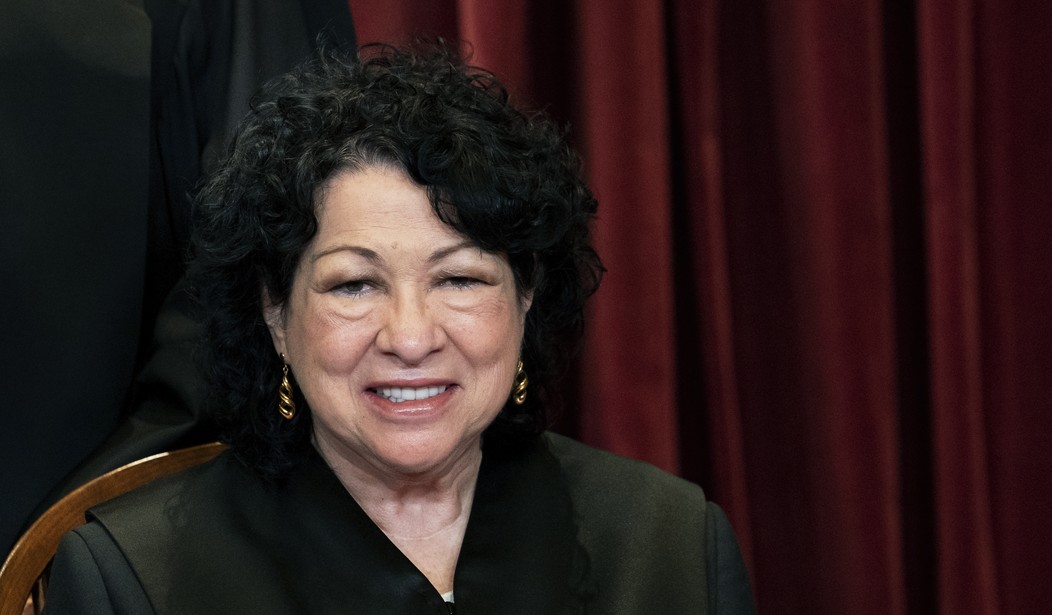Last Friday, Justice Sonia Sotomayor did what the lower courts refused to do in protecting Yeshiva University's religious liberty. She issued a temporary stay protecting the Jewish-affiliated university from having to recognize an LGBT rights club on campus while waiting for a final ruling from the justice or the full Court in the case of YU Pride Alliance, et al. v. Yeshiva University and President Ari Berman.
Once students were told that they could not have a pride alliance on campus, they brought suit, and were met with favorable decisions from New York courts. Had such decisions been final, they would have forced the university to recognize the club, which has argued doing so would go against their values of upholding the Torah.
On August 29, the Becket Law group filed an emergency stay with the U.S. Supreme Court, with 10 amicus briefs from Jewish, Christian, Muslim groups, as well as other faith groups, coming in urging the Court to uphold Yeshiva University's religious liberty. On September 9, that relief was granted in the form of a stay.
"IT IS ORDERED that the injunction of the New York trial court, case No. 154010/2021, is hereby stayed pending further order of the undersigned or of the Court," the order from Justice Sotomayor read.
The stay was applauded by Becket as well as the university. "Yeshiva shouldn’t have been forced to go all the way to the Supreme Court to receive such a commonsense ruling in favor of its First Amendment rights," said Eric Baxter, vice president and senior counsel at Becket in a press release. "We are grateful that Justice Sotomayor stepped in to protect Yeshiva’s religious liberty in this case."
Rabbi Ari Berman, president of Yeshiva University in the same press release is quoted as saying "We are pleased with Justice Sotomayor’s ruling which protects our religious liberty and identity as a leading faith-based academic institution." He also addressed the school's welcoming environment. "But make no mistake, we will continue to strive to create an environment that welcomes all students, including those of our LGBTQ community. We remain committed to engaging in meaningful dialogue with our students, Rabbis and faculty about how best to ensure an inclusive campus for all students in accordance with our Torah values."
Recommended
On Monday, the Wall Street Journal published an op-ed from William McGurn, "Yeshiva University Case Means We’re All Jews Now." In it, he highlights the importance of Yeshiva as a Jewish institution:
Yeshiva University isn’t just any Jewish school. It is the flagship institution of Modern Orthodoxy, committed to the idea that Jews can be at once fully Orthodox and fully engaged with the world. Arguably it is the sweet spot between Haredi Judaism, which tends to keep the outside world at bay, and Reform Judaism, whose embrace of modernity can over time erode Jewish distinctiveness.
New York says Yeshiva doesn’t qualify for a religious exemption. The argument seems to be that because it is incorporated as an educational institution—its motto is Torah Umadda, roughly, Torah plus secular knowledge—it can’t claim to be a religious institution and therefore has no right to an exemption.
What a cramped view this is, as if religion can be so easily separated into neat and distinct boxes—especially at a Jewish university. Ironically, that interpretation inadvertently bolsters the assumption shared by both Haredi Judaism and Reform Judaism: that if you want to be an Orthodox Jew in America you can’t be engaged with the modern world—though each tradition answers that challenge in very different ways.
But if people find themselves forbidden to bring their faith, tradition and insights to the public square, and with their own institutions, all America will be diminished. The constitutional issue is no less substantial: whether the state of New York, by insisting Yeshiva recognize the YU Pride Alliance, is trampling on the university’s free exercise rights under the First Amendment.
The Supreme Court has been favorable to religious liberty in recent terms, with many cases even being unanimous or close to it. In May, the Court unanimously found that the City of Boston violated the First Amendment when it rejected a request for a Christian group to fly their flag on a public flagpole. Another unanimous case came in June of last year, when the Court found that the City of Philadelphia violated the First Amendment rights of Catholic Social Services by barring them from placing children in foster homes due to their unwillingness to place them in homes with same-sex couples.
Other cases on religious liberty from the most recent term included a 6-3 ruling in favor of Coach Joseph Kennedy, who lost his job for praying on the field after high school football games, during which students were not obliged to join him. There was also the 6-3 ruling in Carson v. Makin, which found that government tuition assistance programs cannot discriminate against religious schools, as Maine tried to do.
A new term, which will be Justice Kentanji Brown Jackson's first, will start on October 3, with the Court having its first opening conference on September 28.























Join the conversation as a VIP Member